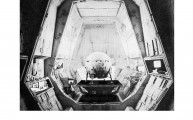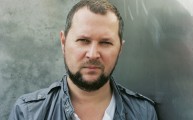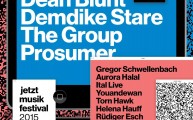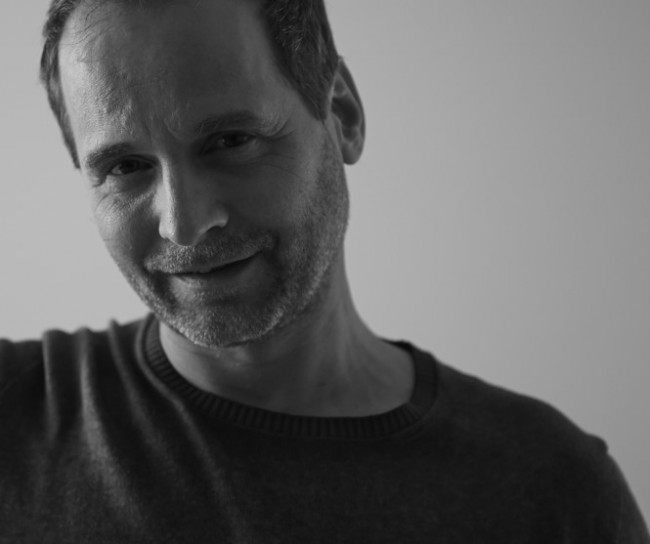Firing out an interview with Tiefschwarz
Contributing to Germany’s electronic music scene since the ’90s, Tiefschwarz assumed an important role in Germany’s house and techno movement by running legendary clubs like ON-U or Red Dog in Stuttgart. The duo’s longstanding experience behind the decks enriched an incredibly diverse discography that includes the who-is-who of the international electronic music scene as well world-class pop artists. EDHID took the chance to have a conversation with Tiefschwarz’s Basti about the craft of DJing, club culture and why producing an album is still relevant in today’s fast moving society. Enjoy the read!
Hi Basti! How and when was your first contact with music?
My parents used to celebrate a lot of big parties at which my father played records and tapes. I recall how he picked up the record that was playing and threw it to the back in order to put the new one on as fast as possible. Hence, I had an early exposure to dancing and parties (laughter).
Why did you abandon your career as a drummer?
I received my first drums at the age of 7 and practised obsessively every day. My first gig outside of Stuttgart was even at the age of 12. Self-confident as you are as a young rebel, I thought that I am going to become the next superstar drummer and played at three bands simultaneously in Stuttgart and decided subsequently to attend the first Yamaha Music School in Hamburg around 1987. After I spent almost three years there, Ali opened his first club ‘ON-U’ in 1990 so I returned back home and set up my drums in the basement of the club. Running a club and being directly exposed to the musical revolution that was happening due to Acid Jazz and bands like Brand New Heavies, I realised that accurate, old-style drumming which I learned at school was less appealing to me compared to the tremendous groove of the new generation of drummers. After a while, I lost my interest in drumming and put down the sticks. Hence, I moved first from the basement to the bar and then eventually to the DJ booth (laughter).
You and Ali run legendary clubs in Stuttgart like ON-U and Red Dog at which a series of Chicago and New York house legends like Tony Humphries, Larry Heard, Masters at Work or Frankie Feliciano played among many others. Can you describe the atmosphere of these places?
‘ON-U’ was the place of birth for several successful music endeavours. Rainer Trüby, who hosted a Sunday tea dance, provided his record collection for sampling to Michi Beck who was a DJ at our club as well as a member of the popular German hip hop band Fantastische Vier. The difference between the clubs is that Red Dog was one of the leading institutions for electronic music, especially house, in Germany. Compared to other relevant clubs, we had a strong focus on garage and jersey influenced sounds that were manifested by labels like Strictly Rhythm, Nervous and many more. Both places, however, pioneered a musical movement in our region. Unfortunately, I can’t share with you all the internals here (laughter).
‘I know club owners who closed their place after more than 20 years because you are always the one who turns the light off.’
You play residencies at world-class dance institutions like Robert Johnson, Fabric, Watergate as well as regular appearances at Cocoon in Ibiza, Resolute in New York, Womb in Tokyo or Sao Paolo’s D-Edge. Could imagine running a club again? What factors are key for a good club?
Against the background of almost 25 years of nightlife, I probably wouldn’t pursue such an endeavour again. It’s out of question that club culture will always play an important role in my life. In my opinion, however, opening a new spot requires an unburdened approach. From a technical perspective it is evident that you have to install a very good sound system but without going mad about it. The most important point is first and foremost the atmosphere of the club. We always aimed for a familiar ambience and this is exactly the most demanding part at the same time. I know club owners who closed their place after more than 20 years because you are always the one who turns the light off. Obviously, you could also run it as an usual business with employees and stop by monthly with having a few drinks but is this really what you want? Running a club was for me a lifestyle decision so I wanted to spend some time with my friends that are either the guests or the DJs. A club literally lives and breathes by the personality and the charisma of the people behind. We experienced this for more than ten years at our own clubs and we have strong relationships with like-minded friends all over the world. Today, I would prefer to open a restaurant (smiling).
So you like cooking?
I absolutely love cooking. I invited the whole Watergate crew recently and cooked a Swabian dish which took me almost a full day (laughter). Cooking is for me like a meditative act that I discovered via my Ayurveda cures over the last years. It’s actually the first thing I do when I come home from all the travelling on Sundays. Giving yourself up to the knife and board, releasing your ears via not listening to music at all, is simple a bliss.
Do you think that your back-2-back DJ sets with Ali create a special synergy?
In the last two years we played less together but I really enjoyed playing separately as well. After almost 25 years behind the decks together, it’s also a value experience to guide through the night on your own. Nevertheless, we had few gigs recently where we just looked to each other and questioned ourselves: ‘what a blast was this?’. Hence, there is still a special energy that comes up where everything just flows perfectly without even thinking about the next record.
‘Sometimes you have to drag yourself out of this mass production and focus rather on developing your musical artistry.’
You remixed a diverse range of international, renowned artists like Depeche Mode, Madonna, Masters at Work, Kelis and your remix for Spectrum’s ‘Kinda New’ was a worldwide hit. You also released remix albums as ‘Little Help For Your Friends’ and ‘MischMasch’. Do you have a favourite among those remixes and do you think that the remixing industry has still a sustainable future?
Indeed, we used to triumph the discipline of remixing (laughter). Obviously, musical trends change over time but I still think that all of them had an unique characteristic for their respective time. I really like the remixes we did for Depeche Mode, Kelis’ “Trick me”, Phonique’s ‘Red Dress’ or the work we did for Spektrum’s ‘Kinda New’ that significantly boosted our career as well. The remix business is not anymore as it used to be since most of the labels are not willing to pay for remix duties. Sometimes you have to drag yourself out of this mass production and focus rather on developing your musical artistry.
How did the music business evolve over the last two decades and what are the implications on DJing?
Nowadays, an artist’s income is primarily contingent on stage performances. Festivals in particular inflated the fee levels since the high entrance fees allow them to compete aggressively with other organisations for en vogue artists. As soon as you reach a certain fee level, however, you can’t really risk exploring new musical realms instead you have to please people who have a certain expectation level. So it doesn’t surprise that everybody is fixed on playing a certain sound and no one is willing to take the extra mile. The idea behind is more about quantity than musical quality that eventually creates an artificial atmosphere of excessive drum rolls, light shows and fireworks. Against this background, I rather prefer to play clubs that have more an informal feel. Honestly, so much good music is available nowadays why should you limit yourself on a specific sound?
‘…it’s such a pity that music as a medium that actually evokes emotions and having artists who invest with much blood, sweat and tears into creating it, are not able to receive one cent in return…’
How did digitalisation affect club culture?
It’s definitely an amazing thing that everybody can produce their own music and it’s beyond all questions that there is a lot of good music out there. However, this oversupply in combination with access from everywhere at any time actually killed the term of club hits as we used to have in the past. I remember how people stormed record stores to get a copy of a limited white label and the few lucky ones played it in excess for six months until a new pressing came in and that eventually resulted in real club hits. In my opinion it’s such a pity that music as a medium that actually evokes emotions and having artists who invest with much blood, sweat and tears into creating it, are not able to receive one cent in return for their hard work. After more than 25 years on stage, I would prefer to produce more albums, make a living out of my royalties and tour from time to time instead of travelling all over the world every weekend just to make a living as a musician. It’s not a discussion about making a lot of money but rather about the appreciation of the hard work of someone who wants to provoke emotions, be it melancholy or happiness, via music. The current consumer society is determined by an incredibly, fast moving trend that doesn’t allow artists to have a creative breathing space.
Did an artist album lose validity then?
It depends on your point of view. Speaking from a consumer perspective, it may be just another album that you pre-listen and click away after shortly. However, the artist perspective in contrary is that you produce a new album because of the desire to achieve a higher level of musical creativity. Hence, it is first and foremost a personal matter. In my opinion an album is an extraordinary challenge that I love to take and offers the opportunity to immerse into new realms of music.
‘Coming home on Sunday evenings completely exhausted physically and mentally doesn’t really motivate you to listen again to techno in the studio on Mondays’
Do you think that travelling benefits or rather impedes the creative process? How does your new album sound like?
The process of our new album was really intense. On one hand, a heavy travel schedule influences your biorhythm significantly by being exposed to different time zones and irregular sleep. Coming home on Sunday evenings completely exhausted physically and mentally doesn’t really motivate you to listen again to techno in the studio on Mondays. After few days in the studio, you actually start to prepare for the weekend and the whole thing starts again. It’s not strictly bad and it could even inspire you since you are listening to other artists and experience the feedback of the crowd immediately. For instance, I completely changed the structure of our album in the last three weeks and added further elements because I had somehow a creative boost. I’m sure that people will be surprised about the result since it sounds completely different compared to our previous work. It’s more a trippy journey and I can’t really describe it more than that it is electronic music on an advanced level. The majority of the album will feature Can Oral alias Khan from the former electronic band Captain Comatose and I have to admit that the outcome is phenomenal.
What can we expect next?
Everything in life is a natural learning process and what I learned is the more relaxed you approach the process of musical creativity the better is the outcome. Anything else just poisons your idea generation. Hence, most of our new productions are scheduled for the first half-year of 2015. The new album will be released via Watergate Records. There will be also four or five EP releases via our very own Souvenir as well as Watergate. We are definitely not tired but all-set to attack again. Be prepared! (laughter).
Tiefschwarz live at Space Ibiza
Tiefschwarz feat. Ruede Hagelstein ‘Fire It Out’
Tiefschwarz Soundcloud
Spektrum ‘Kinda New’ (Tiefschwarz Remix)
Kelis ‘Trick Me’ (Tiefschwarz Remix)
Depeche Mode ‘John The Revelator’ (Tiefschwarz Remix)
Phonique feat. Die Elfen ‘Red Dress’ (Tiefschwarz Remix)
Leave a Reply
-

Purposely Uncertain talk with Lake People
-

Deciphering interview with Locked Groove (Hotflush)
-

Lindstrom at Suma Beach
-

Interview with Orson Wells (Live At Robert Johnson)
-

Ben Klock at Indigo
-
C.A.R.’s debut album My Friend
-

Ballroom talk with Thomas Schumacher
-

Munk playing Sundaze Istanbul
-

EDHID Backstage: Jetztmusik Festival
-

Launch of EDHID




